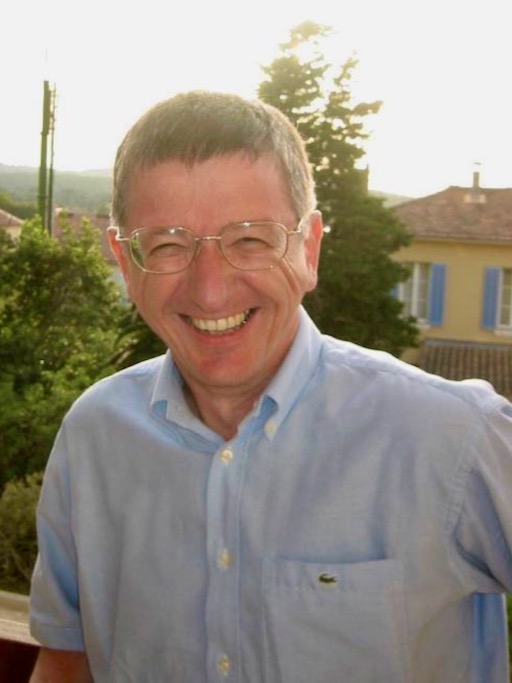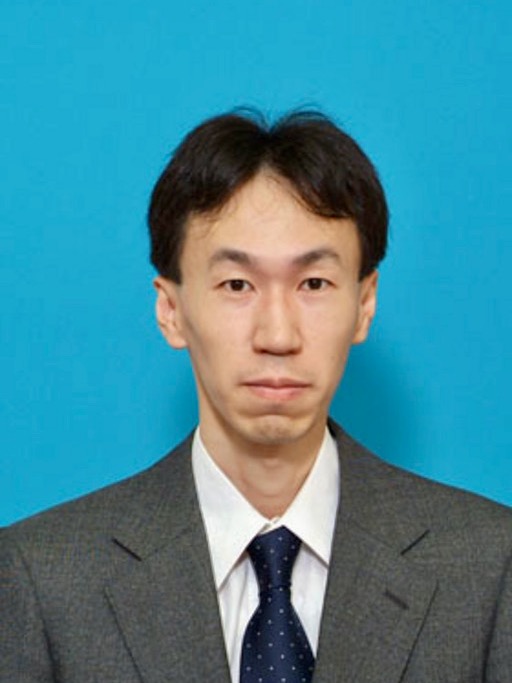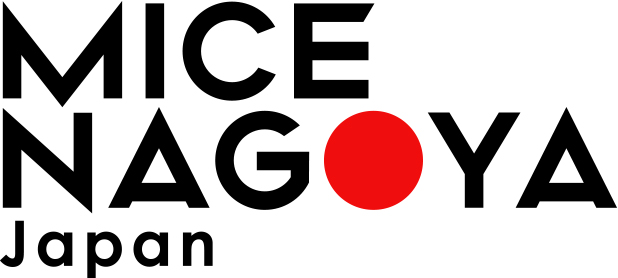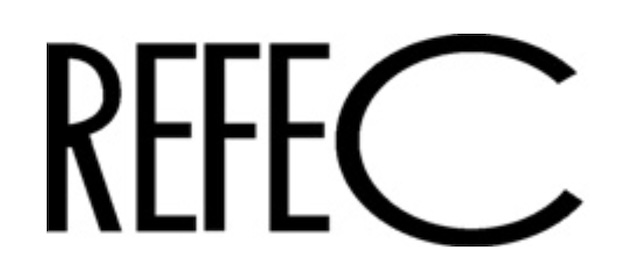About SSS 2024
SSS is an international forum for researchers and practitioners in the design and development of distributed systems with a focus on systems that are able to provide guarantees on their structure, performance, and/or security in the face of an adverse operational environment.
Where
Nagoya International Center, Aichi, Japan
When
Sunday to Tuesday
20-22 October 2024
Keynotes
Here are our keynote speakers

Michel Raynal
IRISA, CNRS, Inria, and University of Rennes

Koutarou Suzuki
Toyohashi University of Technology
Awards
The paper Softening the Impact of Collisions in Contention Resolution, co-authored by Umesh Biswas, Trisha Chakraborty, and Maxwell Young received the best paper award.
Also, Haruki Kanaya received the best student paper award for his paper Complete Graph Identification in Population Protocols, co-authored with Yuichi Sudo.
Registration
Registration is required to participate in SSS 2024. At least one "Author" registration is necessary for each accepted paper; otherwise, the paper will not be included in the proceedings. Discounted prices are available for early registrations until 27 September. An accompanying person may attend the social event (including banquet and tour) for an extra JPY 15,000. Registrations will close on 15 October 2024.
Registration was closed on October 15
Author
Until 27 Sept.:Includes:
- Conference attendance
- Conference kit
- Proceedings (electr.)
- Coffee breaks
- Banquet
- Tour
Regular
Until 27 Sept.:Includes:
- Conference attendance
- Conference kit
- Proceedings (electr.)
- Coffee breaks
- Banquet
- Tour
Student
Until 27 Sept.:Includes:
- Conference attendance
- Conference kit
- Proceedings (electr.)
- Coffee breaks
- Banquet
- Tour
Social Only
Until 15 Oct.:Includes:
- Banquet
- Tour
Program
Here is our event schedule
Regular and invited papers are given 25 minutes for their presentations, including Q&A, whereas BA papers have 10 minutes for them.
Registration
Opening (Yoshiaki Katayama)
Keynote 1 (chair: Toshimitsu Masuzawa)
Break
Session 1 —Track D(1)— (chair: Konstantinos Georgiou)
- Evangelos Kranakis. Invited Paper: A Survey of the Impact of Knowledge on the Competitive Ratio in Linear Search.
- Quentin Bramas, Stéphane Devismes, Anaïs Durand, Pascal Lafourcade and Anissa Lamani. Optimal Asynchronous Perpetual Grid Exploration.
- Ashish Saxena, Barun Gorain, Subhrangsu Mandal and Kaushik Mondal. Brief Announcement: Pebble Guided Rendezvous Despite Fault.
Lunch
Session 2 —Track D(2)— (chair: Sebastien Tixeuil)
- Serafino Cicerone, Alessia Di Fonso, Gabriele Di Stefano and Alfredo Navarra. Gathering of Robots in Butterfly Networks.
- Haruki Kanaya and Yuichi Sudo. Complete Graph Identification in Population Protocols.
- Raja Das, Pritam Goswami and Buddhadeb Sau. Brief Announcement: Perpetual Exploration of Triangular Grid by Myopic Oblivious Robots without Chirality.
Break
Session 3 —Track D(3)— (chair: Hirotsugu Kakugawa)
- Fabian Frei and Koichi Wada. Invited Paper: Gathering Oblivious Robots in the Plane.
- Keita Nakajima, Kaito Takase and Koichi Wada. Efficient Self-stabilizing Simulations of Energy-Restricted Mobile Robots by Asynchronous Luminous Mobile Robots.
- Sahar Badri, Serafino Cicerone, Alessia Di Fonso and Gabriele Di Stefano. An optimal algorithm for geodesic mutual visibility on hexagonal grids.
Break
Session 4 —Track D(4)— (chair: Quentin Bramas)
- Alfredo Navarra and Francesco Piselli. Coating in SILBOT with One Axis Agreement.
- Ryonosuke Yamada, Tomoyuki Usami and Yukiko Yamauchi. Rendezvous and Merging for Two Metamorphic Robotic Systems without Global Compass.
- Kouhei Otaka, Fabian Frei and Koichi Wada. Gathering Semi-Synchronously Scheduled Two-State Robots.
Business meeting
Open
Session 5 —Track B(1)— (chair: Fukuhito Ooshita)
- Yackolley Amoussou-Guenou, Maurice Herlihy, Maria Potop-Butucaru and Sergio Rajsbaum. Invited Paper: The Smart Contract Model.
- Adam Gańczorz, Leszek Gasieniec, Tomasz Jurdzinski, Jakub Kowalski and Grzegorz Stachowiak. Selective Population Protocols.
- Baruch Schieber. Brief Announcement: Towards Proportionate Fair Assignment.
Break
Session 6 —Track B(2)— (chair: Taisuke Izumi)
- Yefim Dinitz, Shlomi Dolev, Manish Kumar and Baruch Schieber. Partially Disjoint Shortest Paths and Near-Shortest Paths Trees.
- Louis Vialar, Jämes Ménétrey, Valerio Schiavoni and Pascal Felber. BlindexTEE: A Blind Index Approach towards TEE-supported End-to-end Encrypted DBMS.
- Christoph Lenzen and Sophie Wenning. Tight Bounds for Constant-Round Domination on Graphs of High Girth and Low Expansion.
Lunch
Memorial Session —Dedicated to Professor Mohamed Gouda— (chair: Anish Arora)
- Shlomi Dolev
- Teruo Higashino
- Ted Herman
- Eunjin Jung
- Sebastien Tixeuil
- Jorge Cobb
- Sandeep Kulkarni
- Chin-Tser Huang
- HB Acharya
- Anish Arora
Social Event
Open
Keynote 2 (chair: Yoshiaki Katayama)
Koutarou Suzuki. Ring Signature and Distributed Cryptography.
Break
Session 7 —Track C— (chair: Pascal Felber)
- Julius Wenzel, Andreas Berg, and Christof Fetzer. Invited Paper: Using signed formulas for online certification.
- Ranjith Chodavarapu, Rabimba Karanjai, Xinxin Fan, Larry Shi and Lei Xu. Adding All Flavors: A Hybrid Random Number Generator for dApps and Web3.
- K Sowjanya, Pabitra Pal, Aman Verma, Bijoy Das, Dhiman Saha, Anand M Baswade and Brejesh Lall. SUPI-Rear: Privacy-Preserving Subscription Permanent Identification Strategy in 5G-AKA.
- Sean Doris, Iosif Salem and Stefan Schmid. Anomaly Detection Within Mission-Critical Call Processing.
- Shlomi Dolev, Komal Kumari, Sharad Mehrotra, Baruch Schieber and Shantanu Sharma. Brief Announcement: Make Master Private-Keys Secure by Keeping it Public.
Lunch
Session 8 —Track B(3)— (chair: Yuichi Sudo)
- Kohya Shiozaki and Junya Nakamura. Selection Guidelines for Geographical SMR Protocols: A Communication Pattern-based Latency Modeling Approach.
- Yackolley Amoussou-Guenou, Lionel Beltrando, Maurice Herlihy and Maria Potop-Butucaru. Byzantine Reliable Broadcast with One Trusted Monotonic Counter.
- Erik van den Akker and Klaus-Tycho Foerster. Brief Announcement: On the Feasibility of Local Failover Routing on Directed Graphs.
Break
Session 9 —Track B(4)— (chair: Maria Potop-Butucaru)
- Joseph Oglio, Mikhail Nesterenko and Gokarna Sharma. TRAIL: Cross-Shard Validation for Byzantine Shard Protection.
- Umesh Biswas, Trisha Chakraborty and Maxwell Young. Softening the Impact of Collisions in Contention Resolution.
Break
Session 10 —Track A— (chair: Sayaka Kamei)
- Ali Ebnenasir. Generating the Convergence Stairs of the Collatz Program.
- Rachel Bricker, Mikhail Nesterenko and Gokarna Sharma. Consensus Through Knot Discovery in Asynchronous Dynamic Networks.
- Tota Yamada and Yonghwan Kim. A Self-Stabilizing Algorithm for the 1-Minimal Minus Domination Problem.
- Mohamed Amine Legheraba, Maria Potop-Butucaru and Sebastien Tixeuil. Brief Announcement: Elevator: Self-* and Persistent Hub Sampling Service in Unstructured Peer-to-Peer Networks.
Closing (Yoshiaki Katayama)
Event Venue
Event venue location info and gallery
Nagoya International Center
SSS 2024 will take place in Annex Hall of Nagoya Intrnational Center, which is directly conncted to Kokusai Center Station (Subway Sakura-dori Line) and 7-minute walk east from Nagoya Station.
Hotels
Nagoya is a big city and you can find many hotels near the symposium site at hotel reservation web sites such as Expedia and Booking.com. Here are some suggestions for attendees.
Near the venue
These hotels are conviniently located from the venue and Nagoya Station.
Near Nagoya Station
Nagoya Station is a terminal station easily accessible from Chubu Centrair International Airport. It is about a 10-minute walk from the venue.
Near Sakae
Sakae is a bit far from the venue (30 minutes on foot or 15 minutes by metro), but you will enjoy Nagoya's nightlife there.
Important Dates
First Deadline
- Paper Submission Deadline:
April 7, 2024April 14, 2024 (11:59 PM AoE) - Acceptance Notification:
May 13, 2024, May 20, 2024 - Camera-Ready Copy Due:
May 23, 2024, May 30, 2024
Second Deadline
- Paper Submission Deadline:
July 4, 2024July 18, 2024 (11:59 PM AoE) - Acceptance Notification: August 16, 2024
- Camera-Ready Copy Due: August 26, 2024
Call for Papers
SSS is an international forum for researchers and practitioners in the design and development of distributed systems with a focus on systems that are able to provide guarantees on their structure, performance, and/or security in the face of an adverse operational environment. The symposium encourages submissions of original contributions on fundamental research and practical applications concerning topics in the four symposium tracks:
Track A. Self-Stabilizing and/or Dynamic Systems: Theory and Practice
- Self-stabilizing systems
- Self-stabilizing protocols and algorithms
- Practically-stabilizing systems
- Variants of self-stabilization
- Topological stabilization
- Autonomic Computing
- Stabilization and self-* properties in hardware, software, and middleware design
- Self-stabilizing software-defined infrastructure
- Dynamic networks, time-varying graphs, evolving graphs
Track B. Distributed and Concurrent Computing: Foundations, Fault-Tolerance and Scalability
- Distributed, concurrent, and fault-tolerant algorithms
- Synchronization protocols
- Shared and transactional memory
- Graph-theoretic concepts for communication networks
- Formal methods, validation, verification, and synthesis
- Social networks
- Game-theory and economical aspects of distributed computing
- Randomization in distributed computing
- High-performance, cluster, cloud and grid computing
- Network security and privacy
- Blockchain technologies and cryptocurrencies
- Applied cryptography
Track C. Cryptography and Security
- Cryptographic designs, implementation analysis, and construction methods
- Secure multi-party computation and cryptographic distributed protocols
- Privacy-enhancing technologies and anonymity
- Post-quantum and information theoretic cryptography and security
- Secure software and secure programming methodologies
- Formal methods, semantics and verification of secure systems
- Fault tolerance, reliability, availability of distributed secure systems
- Game-theoretic approaches to secure computing
- Communication and internet: security, authentication and identification
- Cybersecurity for hardware components, mobile, cyber-physical systems, and internet of things
- Cybersecurity of corporations (applications, end points, and cloud)
- Security and privacy for web applications
- Security of edge and fog computing
- Cryptocurrency and Blockchains
Track D. Moving and Computing
- Mobile agents
- Autonomous mobile robots
- Mobile sensor networks
- Mobile ad-hoc networks
- Population protocols
- Nature-inspired computing
- Programmable particles, nanoscale robots, biological systems, and related new models
New Conference Model
We experiment with a new conference model. There will be TWO deadlines. The review process for these two deadlines will not overlap to allow papers rejected during the first review phase to be reworked, corrected, and enhanced before being resubmitted on the second review round, if wished by the authors. Papers may be submitted at only one deadline. Of course, accepted papers of the first review round are definitely accepted and should not be submitted to the second round. In case of resubmission, reviews from the first phase will be transmitted to the reviewers of the second phase.
Paper Submission
Papers are to be submitted electronically through EasyChair. All submissions must conform to the formatting instructions of Springer LNCS series. Each submission must be an original work written in English, in PDF format.
Double-blind Review
All submissions must be anonymous. We use a somewhat relaxed implementation of double- blind peer review: you are free to disseminate your work through arXiv and other online repositories and give presentations on your work as usual. However, please make sure you do not mention your own name or affiliation in the submission, and please do not include obvious references in the text that reveal your identity. A reviewer who has not previously seen the paper should be able to read it without accidentally learning the identities of the authors. Please feel free to ask the general co-chairs if you have any questions about the double-blind policy of SSS 2024.
Submissions
There are two types of submissions: regular papers and brief announcements.
- A regular submission must not exceed 15 pages (including the title, abstract, figures, and references).
- A brief announcement submission must not exceed 5 pages and should not include any appendix.
Publication
Regular papers and brief announcements will be included in the conference proceedings. Conference proceedings will be published by Springer in the LNCS conference series.
Special Issue
Extended and revised versions of selected papers will be considered for a special issue of Theoretical Computer Science (TCS)
Paper Award
Prizes will be given to the best regular paper and best student regular paper. A regular paper is eligible for the best student paper if at least one of its authors is a full-time student at submission time. Authors should clearly indicate whether their submission is eligible to be considered for the best student paper award (e.g., using a \thanks in the title). The PC may decline to confer awards or may split awards.
Organization
General Co-Chairs
- Toshimitsu Masuzawa, Osaka University, Japan
- Yoshiaki Katayama, Nagoya Institute of Technology, Japan
- Hirotsugu Kakugawa, Ryukoku University, Japan
Organizing Chair
- Yonghwan Kim, Nagoya Institute of Technology, Japan
- Sayaka Kamei, Hiroshima University, Japan
Publicity & Proceedings Chair
- Junya Nakamura, Toyohashi University of Technology, Japan
- Yonghwan Kim, Nagoya Institute of Technology, Japan
Treasurer
- Hirotsugu Kakugawa, Ryukoku University, Japan
Steering Committee
- Anish Arora, Ohio State University, USA
- Shlomi Dolev, Ben-Gurion University of the Negev, Israel
- Sandeep Kulkarni, Michigan State University, USA
- Toshimitsu Masuzawa, Osaka University, Japan
- Franck Petit, Sorbonne Université, France
- Sébastien Tixeuil, (Chair) Sorbonne Université, France
- Elad Michael Schiller, Chalmers University of Technology, Sweden
Advisory Committee
- Sukumar Ghosh, University of Iowa, USA
- Ted Herman, University of Iowa, USA
In Memory of
- Ajoy Kumar Datta
- Edsger W. Dijkstra
- Mohamed Gouda
Program Committee
Track A. Self-Stabilizing and/or Dynamic Systems: Theory and Practice
- Arnaud Casteigts, Co-Chair, University of Geneva, Switzerland
- Sayaka Kamei, Co-Chair, Hiroshima University, Japan
- Karine Altisen, Verimag, France
- Giuseppe Antonio Di Luna, University of Rome - Sapienza, Italy
- Luciana Arantes, Universite Pierre et Marie Curie-Paris6, France
- Lelia Blin, IRIF, Université Paris Cité, France
- Swan Dubois, Sorbonne Université & Inria, France
- Anissa Lamani, Université de Strasbourg, France
- Pierre Leone, University of Geneva, Switzerland
- Franck Petit, LiP6 CNRS-INRIA UPMC Sorbonne Universités, France
- Christian Scheideler, University of Paderborn, Germany
- Yuichi Sudo, Hosei University, Japan
Track B. Distributed and Concurrent Computing: Foundations, Fault-Tolerance and Scalability
- Fukuhito Ooshita, Co-Chair, Fukui University of Technology, Japan
- Andrea Richa, Co-Chair, Arizona State University, United States
- Rida Bazzi, Arizona State University, USA
- Carole Delporte-Gallet, University Paris Diderot, France
- Panagiota Fatourou, University of Crete, Greece
- Laurent Feuilloley, University of Lyon, France
- Olga Goussevskaia, Federal University of Minas Gerais, Brazil
- Naoki Kitamura, Osaka University, Japan
- Moti Medina, Bar-Ilan University, Israel
- Sathya Peri, Indian Institute of Technology Hyderabad, India
- Michel Raynal, University of Rennes, France
- Christian Scheideler, University of Paderborn, Germany
- Gregory Schwartzman, JAIST, Japan
- Gokarna Sharma, Kent State University, USA
- Jamison Weber, Arizona State University, USA
- Yingjie Xue, Hong Kong University of Science and Technology, China
- Maxwell Young, Mississippi State University, USA
Track C. Security, Privacy and Application of Cryptography
- Quentin Bramas, Co-Chair, University of Strasbourg, France
- Pascal Felber, Co-Chair, Universite de Neuchatel, Switzerland
- Emmanuelle Anceaume, CNRS IRISA, France
- Pierre-Louis Aublin, IIJ Research laboratory, Japan
- Christian Cachin, University of Bern, Switzerland
- Pandu-Rangan Chandrasekaran, Madras, India
- Naohiro Hayashibara, Kyoto Sangyo University, Japan
- Rüdiger Kapitza, FAU Erlangen-Nürnberg, Germany
- Pascal Lafourcade, University Clermont Auvergne, France
- Miguel Matos, IST Lisbon, Portugal
- Atsuko Miyaji, Osaka University, Japan
- Raoul Strackx, Fortanix, Netherlands
- Sara Tucci Piergiovanni, CEA LIST, France
- Osman Unsal, Barcelona Supercomputing Center, Spain
- Susanne Wetzel, Stevens Institute of Technology, United States
Track D. Moving and Computing
- Konstantinos Georgiou, Co-Chair, Toronto Metropolitan University, Canada
- Masahiro Shibata, Co-Chair, Kyushu Institute of Technology, Japan
- John Augustine, IIT Madras, India
- Doina Bein, California State University, USA
- François Bonnet , Tokyo Institute of Technology, Japan
- Fabien Dufoulon, Lancaster University, UK
- Ryota Eguchi, Nara Institute of Science and Technology, Japan
- Darya Melnyk, TU Berlin, Germany
- Othon Michail, University of Liverpool, UK
- Alfredo Navarra, University of Perugia, Italy
- Aris Pagourtzis, National Technical University of Athens, Greece
- Denis Pankratov, Concordia University, Canada
- Partha Sarathi Mandal, IIT Guwahati, India
- Ramachandran Vaidyanathan, Louisiana State University, USA
- Yukiko Yamauchi, Kyushu University, Japan
Supporters
SSS 2024 is supported by the following organizations. We deeply appreciate their supports.












